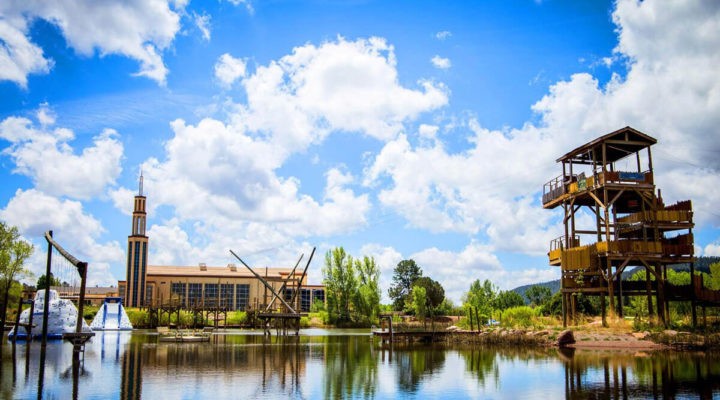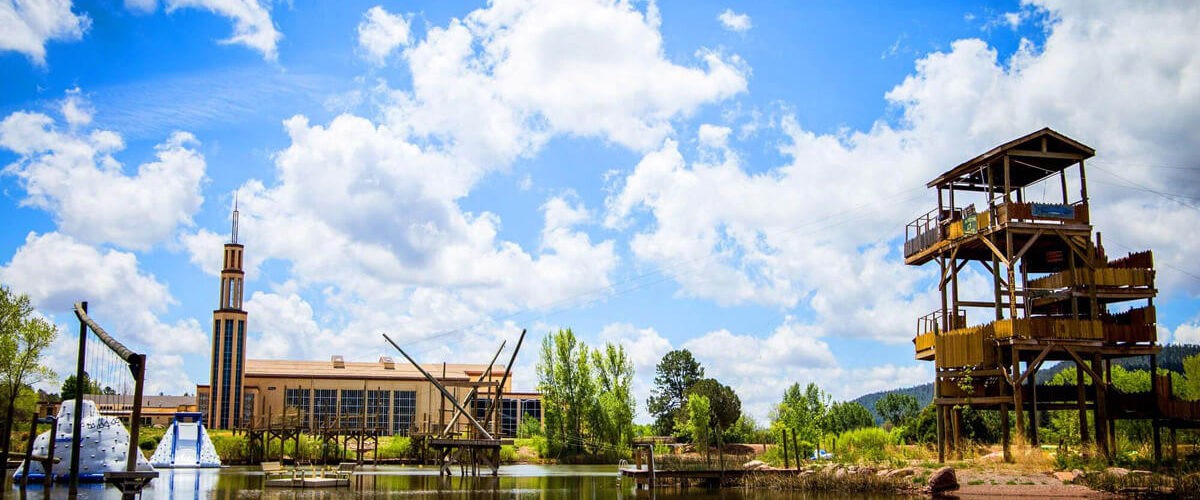If owning and managing a camp or conference center was hard before March 15, consider the difficulty created after COVID-related cancellations began pouring in.
Baptists saw the first crack in the viability of running retreat and conference centers seven years ago when LifeWay Christian Resources sold its prime New Mexico property, Glorieta Conference Center, for $1.
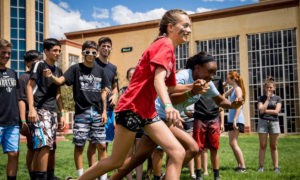
Scene from a previous summer of youth camps at Glorieta, now operated by Glorieta 2.0.
Located just east of Santa Fe, N.M., Glorieta had enjoyed robust popularity for more than a half century. Then in 2011, LifeWay trustees announced they were seeking a buyer to take the 2,400-acre property off their hands. It took another two years, until August 2013, before the sprawling site was sold to a Christian camping organization out of Texas.
LifeWay’s reasons for the sale were given as “changes in church practices, rising costs and a volatile economy.” Finding a buyer — even at $1 — took two years because of “significant financial challenges to operate the 2,400-acre facility,” a news release said at the time.
Then a month into the COVID-19 pandemic, LifeWay dropped the other shoe. Trustees in a special called session in April voted to sell Ridgecrest Conference Center, the East Coast sister facility to Glorieta. Officials said this decision had been under consideration prior to the pandemic.
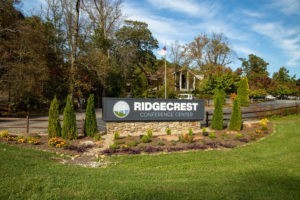 In addition to the possibility of operating at reduced occupancy levels due to COVID-19, operating Ridgecrest “will require a significant increase in financial investment over the next 10 years,” said LifeWay president and CEO Ben Mandrell. “Owning a conference center will require more financial investment than we can bear.”
In addition to the possibility of operating at reduced occupancy levels due to COVID-19, operating Ridgecrest “will require a significant increase in financial investment over the next 10 years,” said LifeWay president and CEO Ben Mandrell. “Owning a conference center will require more financial investment than we can bear.”
Despite the current pandemic, “stewardship” seems to be the operative word when it comes to liability of Christian camps, retreats and conference centers. While Ridgecrest registers 70,000 guests annually for a variety of year-round events, it is the long term “significant operational and increasing financial investment” that has trustees concerned.
LifeWay does not receive financial support from the Southern Baptist Convention but its once-robust publishing industry has fallen on hard times. Competition from the internet caused a slow collapse of its sales, and its remaining 170 bookstores were shuttered in 2019.
LifeWay sold off its 15-acre campus in downtown Nashville in 2015 and rebuilt on a much smaller footprint nearby. Then, a week after its decision to place Ridgecrest up for sale, it cut its 2020 budget by up to $30 million, implemented spending freezes and downsized staff.
Now its two-year-old headquarters building could be up for sale, based on a feasibility study announced in April. And that is why Ridgecrest, while still vastly popular with churches and national conferences, also is up for sale.
State camps also face pressure
Camps and conferences centers run by state Baptist groups could be next on the real estate market. Without the cushion from a busy summer this year, they will struggle to pay bills in the coming off-season. Bookings remain scarce and large groups, such as senior citizen conferences typically popular in the fall, have been cancelled due to the high-risk health concern.
One alternative could lie in the business model used among Baptists in Alabama and Florida: selling the property or granting it quasi-independence under a new business model.
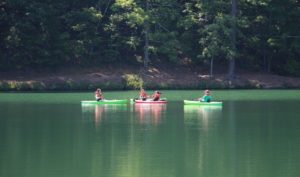
Boating at Shocco Springs.
In 1999, Shocco Springs Baptist Conference Center, located near Talladega, Ala., was spun off as a wholly owned entity of the Alabama Baptist State Board of Missions. Florida Baptists recently took a similar approach with Lake Yale Conference Center in Central Florida.
The approach is simple: the state convention relinquishes ownership of a facility yet maintains a degree of control through approving nominees to the board of directors who are chosen by the conference center. That arrangement, along with a level of support from the convention, assures the facility will remain true to its theological foundation.
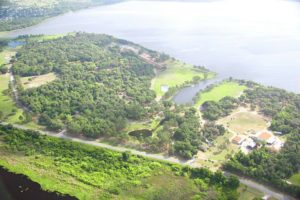
Aerial view of Lake Yale Baptist Conference Center in Florida.
The conference center, in turn, is recognized as a self-governing “cooperating ministry,” explained Jeff Yant, who oversees the nearly 300-acre Lake Yale camp in Central Florida. To eliminate any confusion as to its new identity, its website prominently states “Proudly Florida Baptist.” Both Shocco and Lake Yale keep Baptist in their names, unlike Glorieta and Ridgecrest which previously dropped the wording to extend marketing reach.
Both Russell Klinner, executive director at Shocco Springs, and Yant in Florida speak favorably about the new relationship and the freedom to self-govern and market themselves to a larger faith community. But other states have not fared as well.
In March 2016, Georgia Baptists gifted their South Georgia conference and retreat center to Shorter University. Convention officials cited several years of losses averaging $300,000 to $700,000 at Norman Park Conference Center.
The 32-acre site had, in turn, been gifted to the state convention in 1971 with the closure of Norman College. Georgia Baptist Executive Director Robert White, who has since retired, told Executive Committee members at the time that the facility only had a 14% occupancy rate, even with the heavy sold-out summer schedules — and only 30% of those using the retreat center were Baptists.
Dawn Tolbert, associate vice president for Shorter, said the facility never has been used by the university since it was gifted and “is on the market and not actively being used.”
The Georgia Baptist Convention maintains its popular retreat center at Toccoa in North Georgia, which has been serving guests for 57 years.
A hurricane in Florida
A similar scenario played out in Florida. Due to declining attendance, Blue Springs Conference Center — a sister facility to Lake Yale — was gifted to the Baptist College of Florida in 2016. That was one year after new state executive director Tommy Green cited a need for better stewardship through a leaner organization. Part of that plan included reducing staff headcount by 47% and selling the Baptist headquarters in Jacksonville.
But after one profitable year, Hurricane Michael ravaged the facility as it plowed through the Florida Panhandle in October 2018. Citing extensive damage, spiraling repair costs — and the need for better stewardship of limited resources — the 90-acre-site was placed on the market.
The sale to Camp Anderson Ministries for $3 million was finalized on July 8 of this year with the new owners anticipating as many as 15,000 guests annually.
California camp rescued
A third model has surfaced in California. On May 14, California Baptists agreed to immediately close Jenness Park Christian Camp and permanently shut down the facility by June 30. The 160-acre camp, founded in 1953 in the Sierra Nevada Mountains near Sonora, was deemed to be “financially unsustainable.”
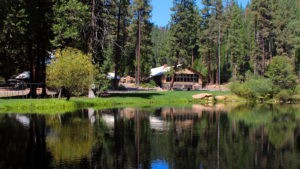
Jenness Park
California Southern Baptist Convention Executive Director Bill Agee said at the time that Jenness Park posted a $2 million loss — “almost $24,000 monthly” — during the previous seven years, even when the camp was fully operational.
The camp was on a turnaround plan to balance its budget and become a self-sustaining entity by the beginning of 2021. Then the pandemic hit and the deficit skyrocketed to $70,000 monthly. With state convention reserves exhausted, the sale was unavoidable. Once again, the need for responsible stewardship was cited.
Just 30 days after the shutdown, Gracepoint Fellowship Church of Berkley stepped forward to purchase the property for $1.5 million. The fast-growing, multi-ethnic congregation has a nationwide network of church plants near college campuses nationwide. It has been a cooperating church with the California Baptist Convention since 2006.
The new owners said California Baptists are welcome to schedule retreats as in the past, maintaining a close connection to the state convention. The outcome was the perfect solution: the state convention and its churches have access to a rustic conference center at reasonable prices without the worry of maintenance and cash flow.
What comes next?
Back in Alabama, Klinner is ready to put 2020 in his rearview mirror and look to brighter days to come.
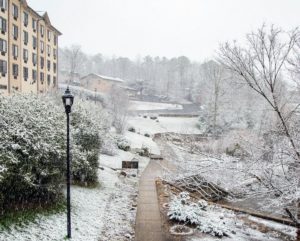
Ridgecrest in a winter snow.
“We feel like we are coming out of the woods and the future is looking more positive and upbeat. We’re already signing contracts for next year.”
Meanwhile, at Glorieta, the new owners had to shutter the camp for the summer and do not plan to reopen until spring 2021. Staff has been reduced to a bare minimum while the private camp waits out the economic storm as winter is coming.

